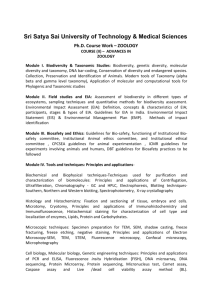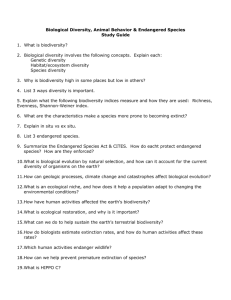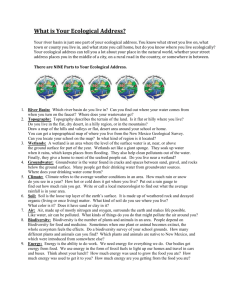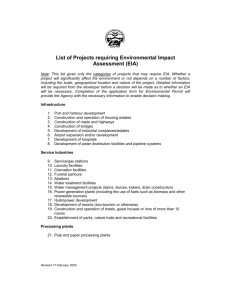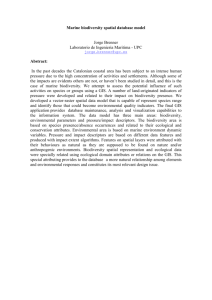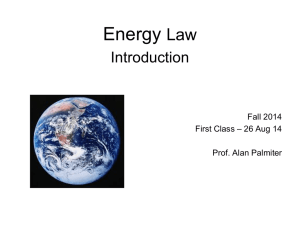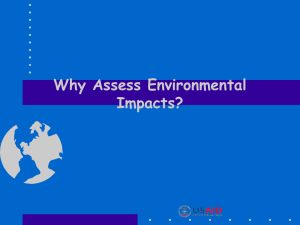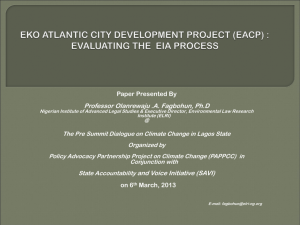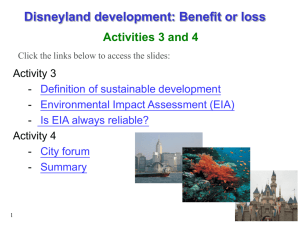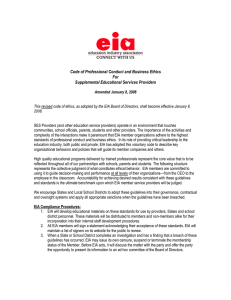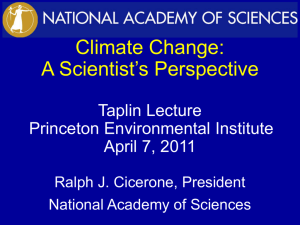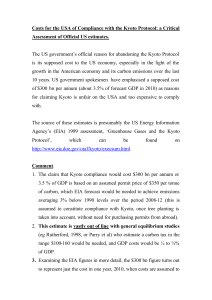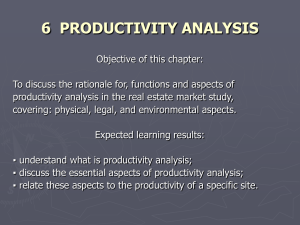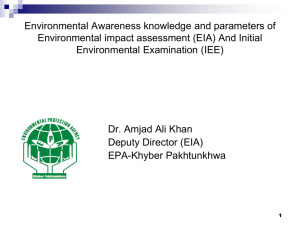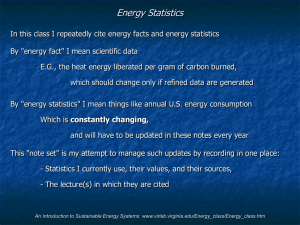Environmental Studies (BBA) ENSA3401 (July 2015
advertisement
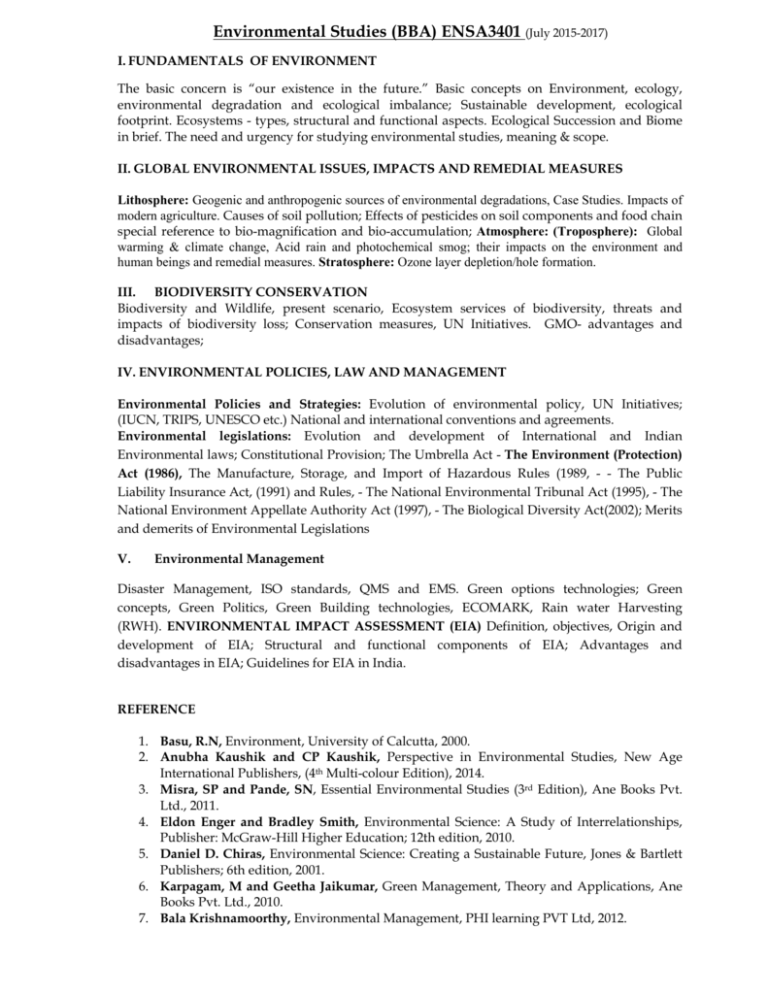
Environmental Studies (BBA) ENSA3401 (July 2015-2017) I. FUNDAMENTALS OF ENVIRONMENT The basic concern is “our existence in the future.” Basic concepts on Environment, ecology, environmental degradation and ecological imbalance; Sustainable development, ecological footprint. Ecosystems - types, structural and functional aspects. Ecological Succession and Biome in brief. The need and urgency for studying environmental studies, meaning & scope. II. GLOBAL ENVIRONMENTAL ISSUES, IMPACTS AND REMEDIAL MEASURES Lithosphere: Geogenic and anthropogenic sources of environmental degradations, Case Studies. Impacts of modern agriculture. Causes of soil pollution; Effects of pesticides on soil components and food chain special reference to bio-magnification and bio-accumulation; Atmosphere: (Troposphere): Global warming & climate change, Acid rain and photochemical smog; their impacts on the environment and human beings and remedial measures. Stratosphere: Ozone layer depletion/hole formation. III. BIODIVERSITY CONSERVATION Biodiversity and Wildlife, present scenario, Ecosystem services of biodiversity, threats and impacts of biodiversity loss; Conservation measures, UN Initiatives. GMO- advantages and disadvantages; IV. ENVIRONMENTAL POLICIES, LAW AND MANAGEMENT Environmental Policies and Strategies: Evolution of environmental policy, UN Initiatives; (IUCN, TRIPS, UNESCO etc.) National and international conventions and agreements. Environmental legislations: Evolution and development of International and Indian Environmental laws; Constitutional Provision; The Umbrella Act - The Environment (Protection) Act (1986), The Manufacture, Storage, and Import of Hazardous Rules (1989, - - The Public Liability Insurance Act, (1991) and Rules, - The National Environmental Tribunal Act (1995), - The National Environment Appellate Authority Act (1997), - The Biological Diversity Act(2002); Merits and demerits of Environmental Legislations V. Environmental Management Disaster Management, ISO standards, QMS and EMS. Green options technologies; Green concepts, Green Politics, Green Building technologies, ECOMARK, Rain water Harvesting (RWH). ENVIRONMENTAL IMPACT ASSESSMENT (EIA) Definition, objectives, Origin and development of EIA; Structural and functional components of EIA; Advantages and disadvantages in EIA; Guidelines for EIA in India. REFERENCE 1. Basu, R.N, Environment, University of Calcutta, 2000. 2. Anubha Kaushik and CP Kaushik, Perspective in Environmental Studies, New Age International Publishers, (4th Multi-colour Edition), 2014. 3. Misra, SP and Pande, SN, Essential Environmental Studies (3rd Edition), Ane Books Pvt. Ltd., 2011. 4. Eldon Enger and Bradley Smith, Environmental Science: A Study of Interrelationships, Publisher: McGraw-Hill Higher Education; 12th edition, 2010. 5. Daniel D. Chiras, Environmental Science: Creating a Sustainable Future, Jones & Bartlett Publishers; 6th edition, 2001. 6. Karpagam, M and Geetha Jaikumar, Green Management, Theory and Applications, Ane Books Pvt. Ltd., 2010. 7. Bala Krishnamoorthy, Environmental Management, PHI learning PVT Ltd, 2012.

